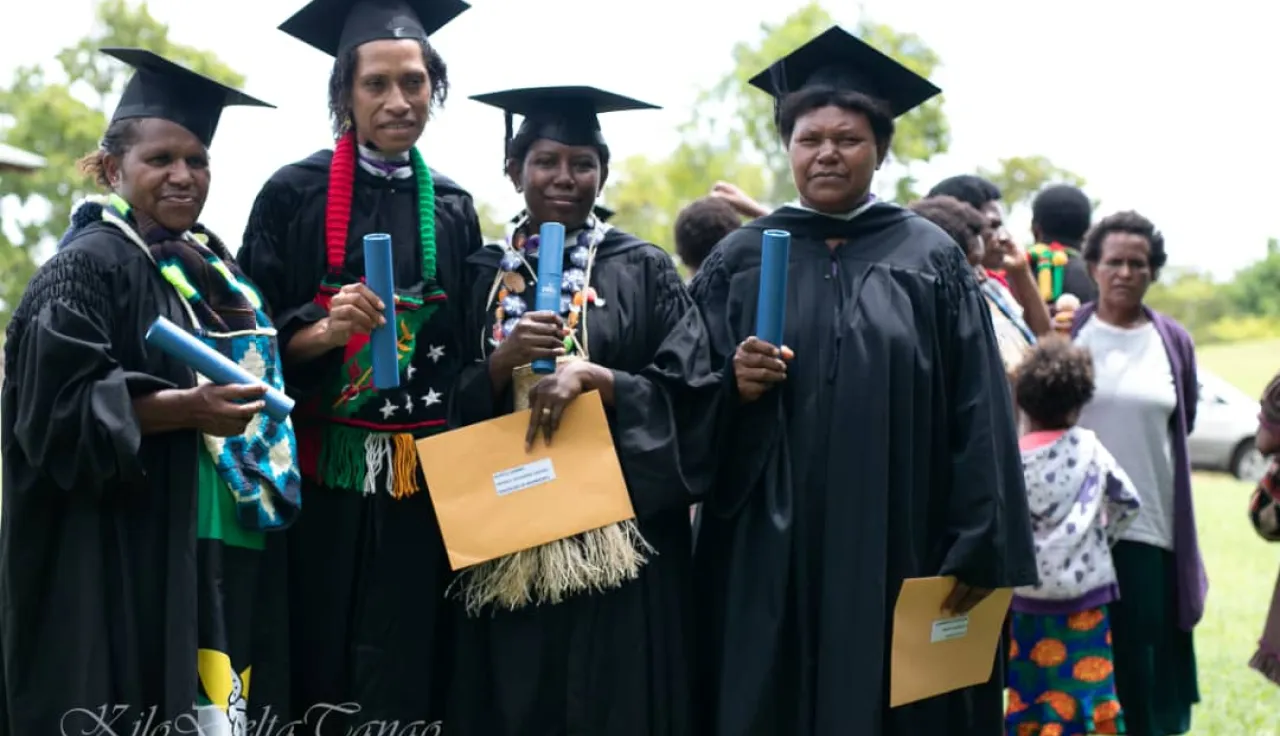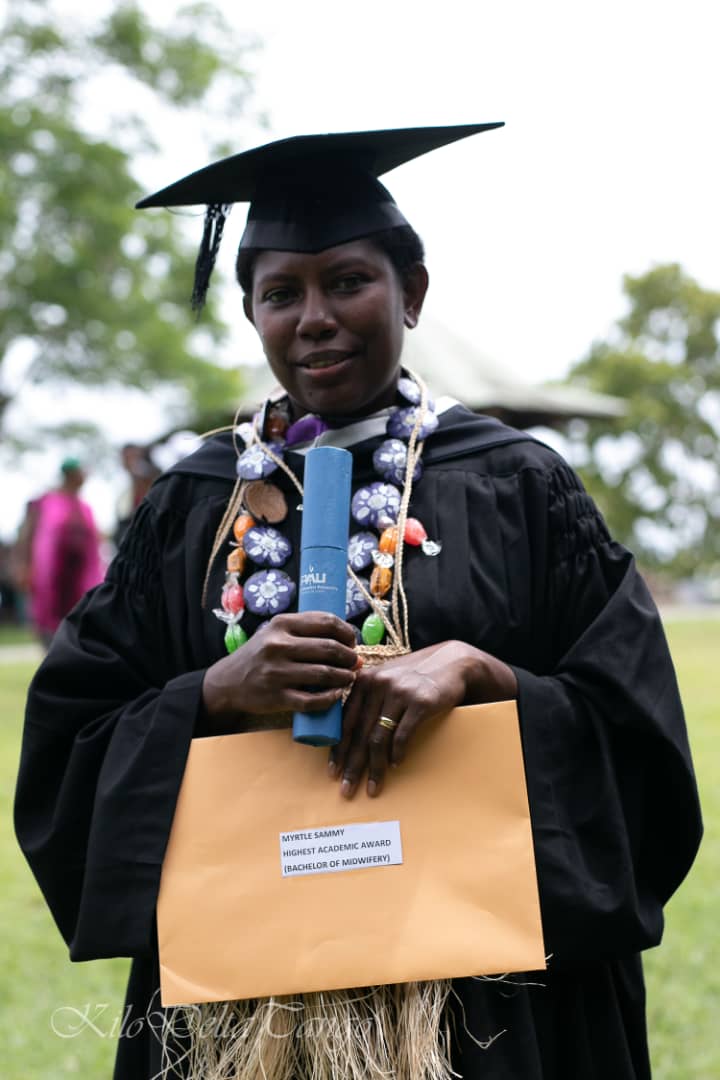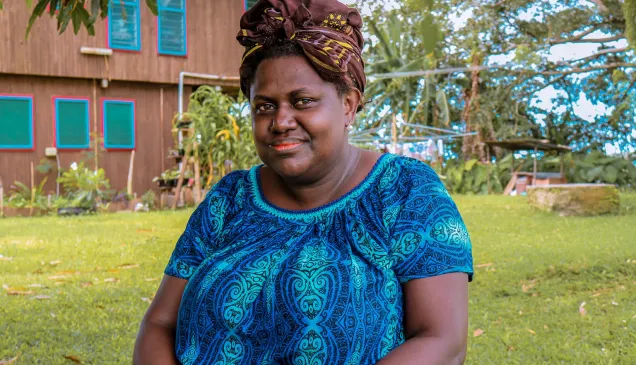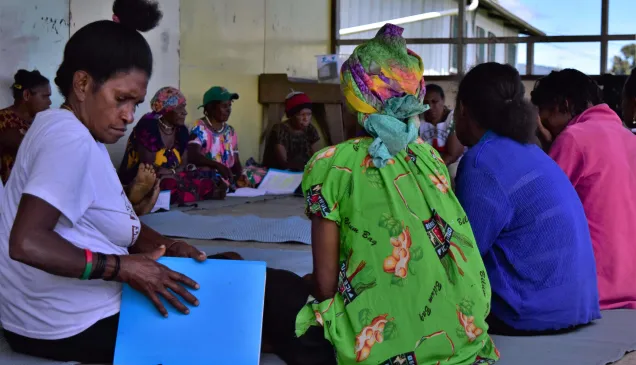Papua New Guinea: Sponsoring nurses to become midwives and educators

Myrtle Sammy is one of five registered nurses in Papua New Guinea who was sponsored by the ICRC to study midwifery. After graduating top of her class, she now looks to share her knowledge and skills to help strengthen health care in her community.
The first seven years of her professional life, Myrtle worked as a nurse in different provinces throughout Papua New Guinea. In 2017 she decided it was time to go back to her hometown of Arawa, Bougainville, and serve her own people. On her return, she joined the Arawa School of Nursing and began training future nurses to provide quality care with often limited resources and in remote areas.
I love teaching and educating communities, so it was just right that I joined as an educator. I have done my best to share my knowledge and skills with upcoming nurses.
Two years into her new position, Myrtle was offered a scholarship by the ICRC to pursue a bachelor of midwifery.
My boss decided to send me for further studies after I had served the school for two years. I was aware of the lack of experienced midwives in our country and particularly our province have, so it was very exciting to be picked among the five who were going to be trained and entrusted with the task of training others.
She is now the first of the five students to graduate with a bachelor of midwifery from the Pacific Adventist University. As elated as she is about her academic achievement, Myrtle is even more thrilled about being able to go back and train other nurses in her hometown. The need to build a strong health care system for her community has and will continue to be very close to her heart.

Of the five students sponsored for the 2019-2020 pilot project, two were from Arawa and three from the Southern Highlands Province and Hela Province.
In the remote parts of the Highlands, where the ICRC is supporting health facilities, it is mandatory that a trained midwife is deployed in a health care facility to ensure quality service for mothers and children and victims of sexual violence
ICRC health delegate Carol Kaburu adds that this project is the first of its kind for the ICRC in PNG and they look forward to sponsoring more students in the next cohort.
Writing a note of thanks to the ICRC, after her graduation, Sammy says,
Dear Carol,
I want to thank the organization and the team for the full support towards my study here at PAU.
I really appreciate the opportunity to further my studies. I did my best to ensure I get the best results and that your sponsorship is worth it.
With the knowledge and skills I have gained, I'm going back to Bougainville to educate the nurses and to serve my people.
The ICRC's scholarship programme was created to:
Increase pregnant women's access to qualified midwives at rural health facilities.
Increase the number of midwives able to provide quality antenatal care and safe deliveries.
Contribute to reducing maternal and neonatal mortality and morbidity rates – in the Antenatal, intrapartum and post-partum periods, by the early detection of problems and early referral, to a higher level of care.



